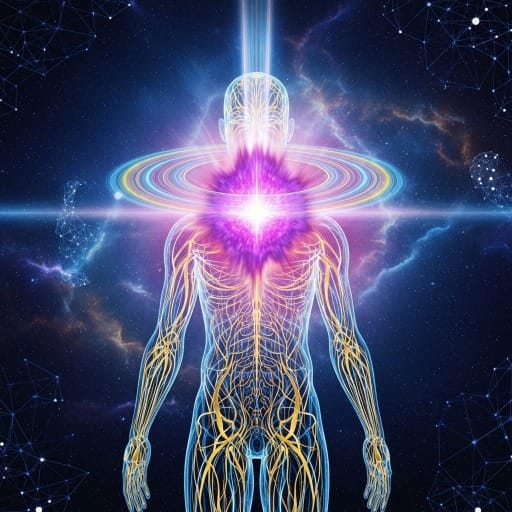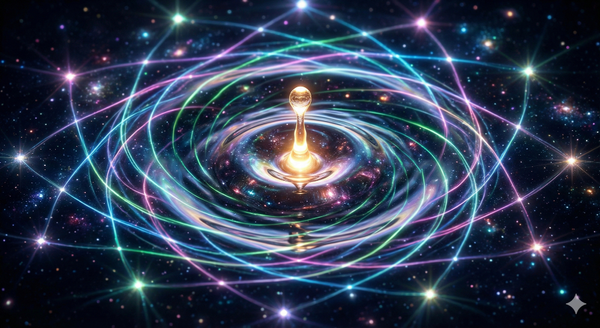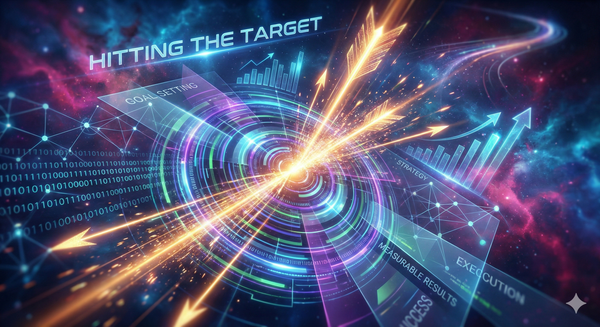From Inspiration to Introspection: The Multifaceted Influence of Science Fiction
Science fiction is more than escapism; it expands the mind by sparking creativity, challenging beliefs, and reflecting our humanity. It acts as both a telescope to future possibilities and a microscope into our inner lives, inspiring innovation, empathy, and introspection.
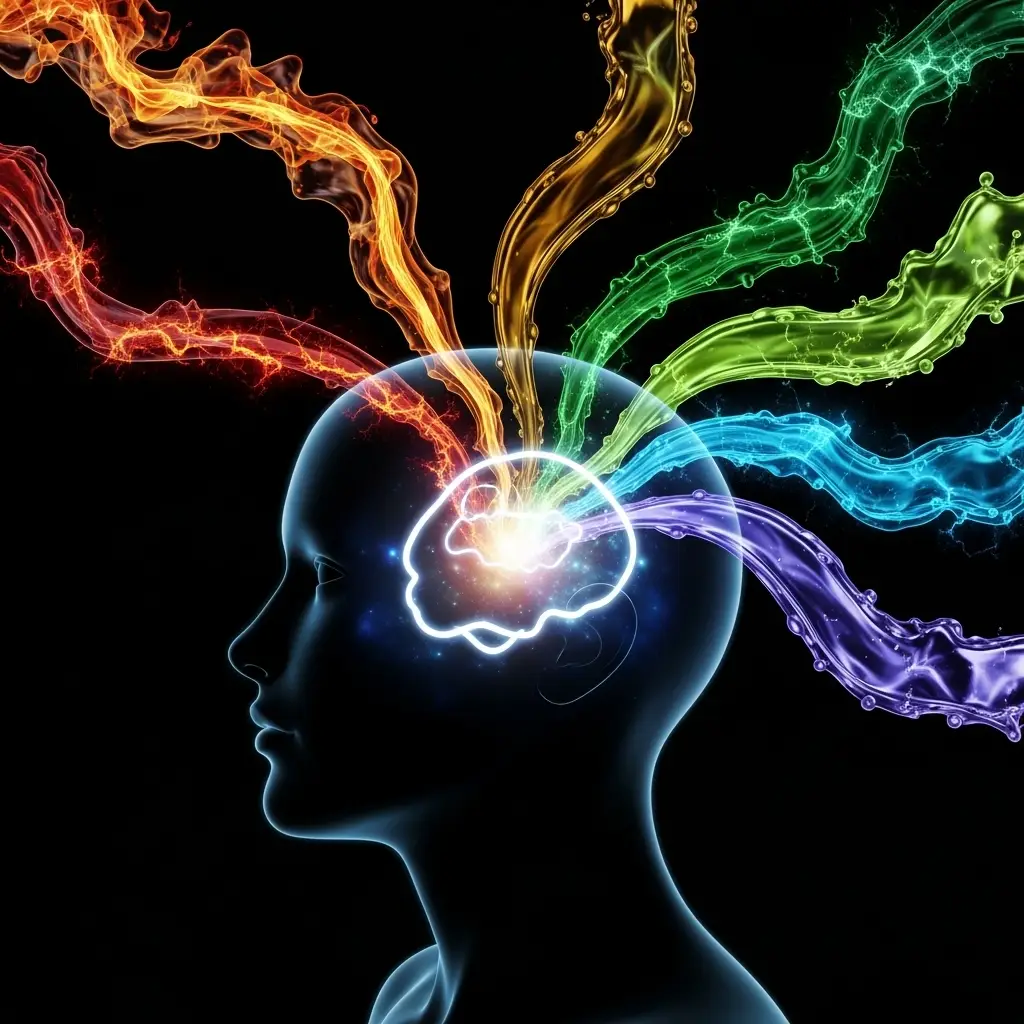
Key Takeaways
- Science fiction is not just escapism; it expands the mind by sparking creativity and challenging beliefs.
- It acts as both a telescope and a microscope, revealing connections between technology, society, and personal introspection.
- Sci-fi reflects our humanity, pushing us to confront ethical dilemmas and the complexities of our choices.
- The genre fosters empathy by introducing diverse characters and encouraging an understanding of different perspectives.
- Ultimately, the influence of science fiction encourages us to question our reality, purpose, and interconnectedness in the universe.
🤯7 Ways Science Fiction Expands Your Mind: From Inspiration to Introspection
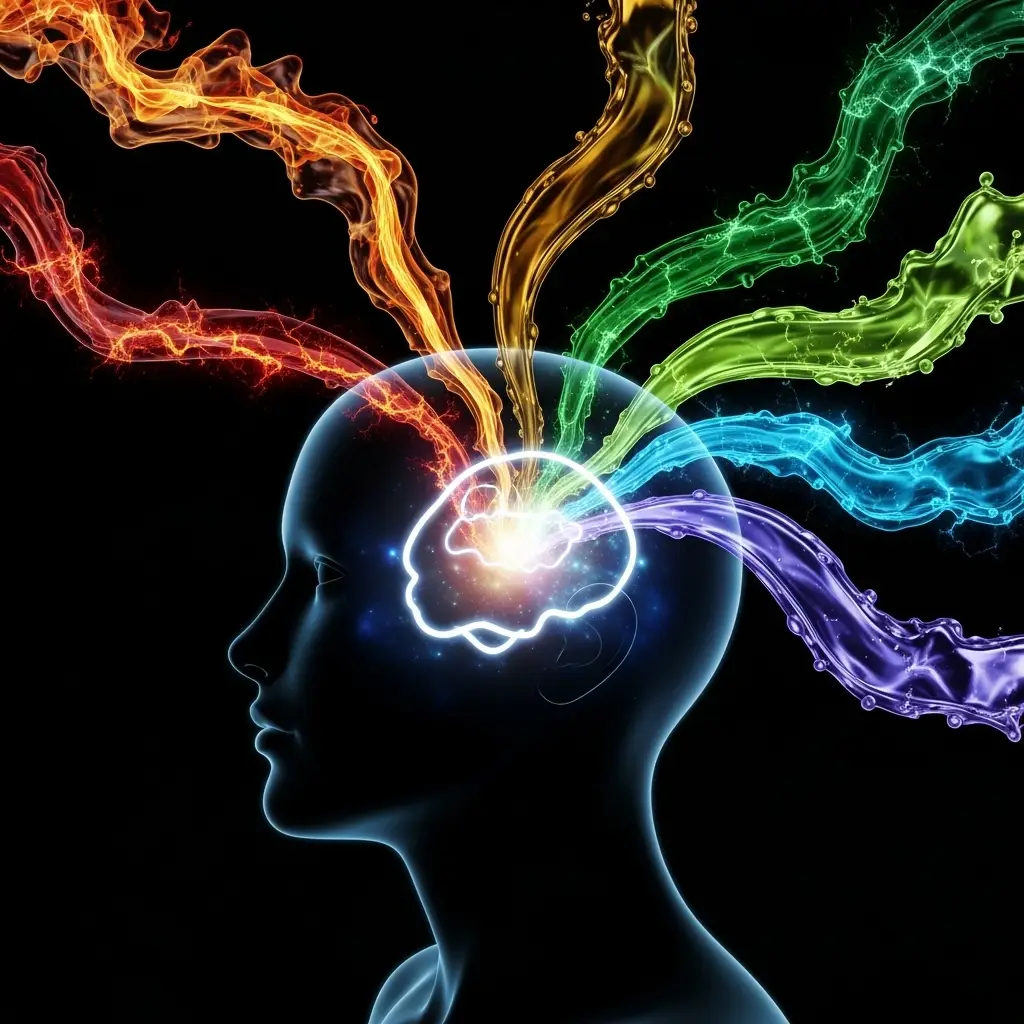
Have you ever felt like science fiction is just escapism? Think again. The influence of science fiction extends beyond just spaceships and aliens; it's a mind-expanding genre that can spark creativity, challenge your beliefs, and even make you more empathetic. In many ways, science fiction acts as both a telescope and a microscope. It’s a telescope that lets us gaze at the vast possibilities of the future and the cosmos, but it’s also a microscope that lets us examine the intricate, often hidden, structures of our own humanity.
In this post, we'll explore the holistic aspects of science fiction—how it reveals the hidden connections between technology, society, and our inner lives—and the metaphysical—how it bravely asks the bone-deep questions about what it means to be real, conscious, and human. Get ready to have your mind blown!
💡Science Fiction as a Catalyst for Curiosity and Innovation
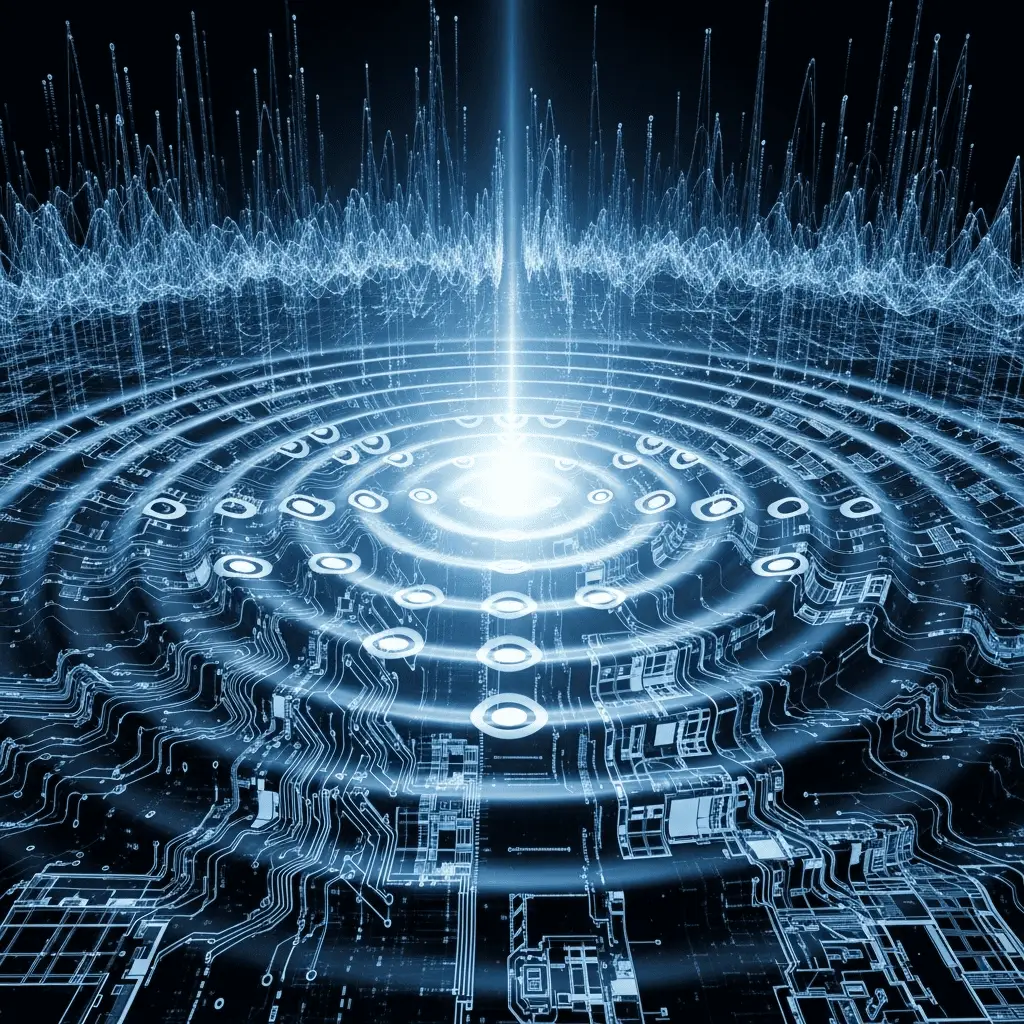
Science fiction has always been intertwined with scientific exploration. From Jules Verne's 20,000 Leagues Under the Sea to modern tales of artificial intelligence, sci-fi pushes the boundaries of what's possible. By imagining the future, we inspire real-world innovation.
🪞Mirrors to Humanity: Sci-Fi's Reflection of Ourselves
Sci-fi doesn't just look forward; it also reflects on our present selves. Dystopian classics like 1984 and The Handmaid's Tale warn us about the dangers of unchecked power, while more optimistic stories show us the best of humanity. But it's more than just a warning about society; it’s a stress test for the human spirit. By throwing characters into extreme situations, sci-fi asks us: What would you sacrifice? Where is your breaking point? It forces us to confront the shadows not just in our governments, but in our own hearts.
🤔A Journey of Introspection: Exploring Big Questions
Sci-fi isn't afraid to tackle the big questions: What does it mean to be human? Are we alone in the universe? By exploring these themes, sci-fi drags these giant questions out of the philosophy classroom and drops them right into our laps, forcing us to ask not just "what is humanity?" but "what is my humanity?"
🎬Beyond the Screen: Sci-Fi's Influence on Culture
From Star Wars lightsabers to Star Trek communicators, sci-fi has had an enormous impact on popular culture. It shapes our understanding of technology, fashion, and even language.
🌐A Universal Language: Connecting Through Shared Wonder
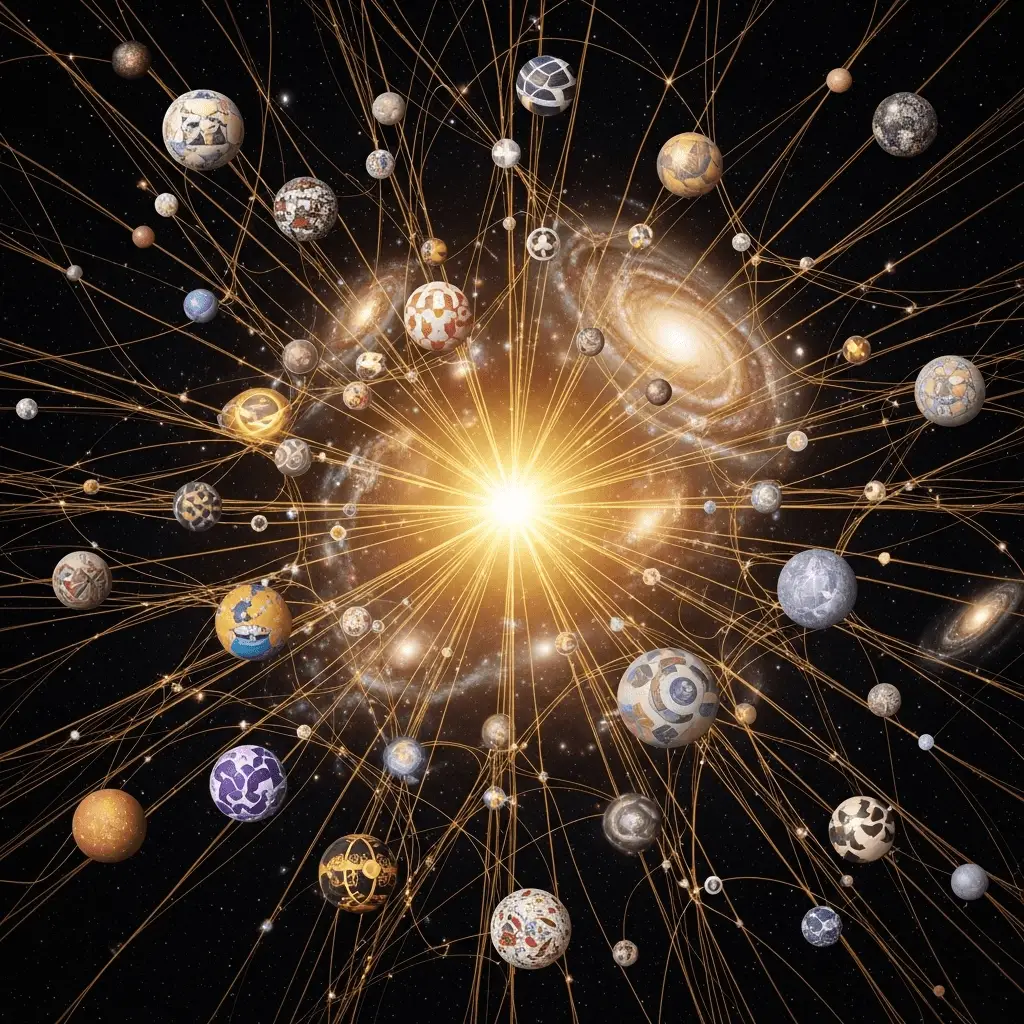
One of the most amazing things about sci-fi is its universality. It transcends cultural boundaries, connecting people through shared experiences of wonder and excitement.
🕸️Holistic Influence: Bridging Science and the Human Spirit
Science fiction encourages us to see the bigger picture—the intricate web of connections that defines our world. It shows us that nothing happens in a vacuum.
- It explores the ethical implications of technology, acting as a kind of moral flight simulator for the future. We get to crash-test ideas—from designer babies to sentient AI—in the safe space of a story. It’s not just about "good" or "bad" tech; it's about exploring the messy, complicated gray areas of human choice. A show like Black Mirror serves as a modern fable, showing how a well-intentioned app can unravel our lives, while a film like Gattaca doesn't just critique genetic discrimination—it champions the untamable human spirit in a world that tries to program it away.
- It expands our understanding of reality by showing how interconnected everything is. Sci-fi often treats planets and ecosystems not just as backdrops, but as living characters. In Frank Herbert’s Dune, the desert planet’s ecology, politics, and spirituality are interwoven. This holistic view is a powerful antidote to our often-fragmented modern world. It challenges us to see the threads connecting climate change to consumerism, or social media algorithms to our mental health. We aren't just masters of our world; we are a single, influential part of a much larger, deeply interconnected system.
- By introducing us to diverse characters and cultures, it fosters empathy and understanding. When we journey with a character from a completely different background—whether alien, artificial, or from a future society—we start to see the universe through their eyes. This process fundamentally rewires our empathy circuits. It stretches our capacity for compassion by proving that a "person" can look and live in ways we never imagined, yet still feel love, loss, and hope. It’s a powerful way to practice compassion for those who are different from us, both in fiction and in our own lives.
🌌Metaphysical Influence: Delving into the Nature of Existence
This is where sci-fi truly bends our minds, turning huge, abstract questions about existence into something beautifully, terrifyingly tangible.
- It grapples with the most fundamental question: What is consciousness? What makes a soul? Stories like Blade Runner or Ex Machina dissolve the comfortable line between "human" and "machine," forcing us to ask whether a collection of memories or the capacity for empathy truly defines a person. These stories don't just present a puzzle; they dissolve the comfortable lines we draw for our own security. They take the philosophical problem of the "ghost in the machine" and make it a heartbreaking, deeply personal reality.
- It confronts us with existential questions about our purpose and destiny. What happens after humanity? Arthur C. Clarke’s Childhood’s End imagines our evolution beyond individuality into a cosmic consciousness. This is a profound challenge to our modern, individualistic mindset. Suddenly, the goal isn't just about our personal success or happiness, but about our role in the cosmic, multi-generational story of humanity. Concepts like uploading our minds to a digital reality force us to define what's essential about being human—and what we'd be willing to give up for a chance at immortality.
- By imagining worlds beyond our own, it cracks open the door of our perceptual cage. Our reality feels linear and singular, but what if it isn’t? Films like The Matrix or Everything Everywhere All At Once question if our world is a simulation or just one of infinite parallel universes. The film Arrival brilliantly explores how language can change our experience of time, dissolving the boundary between past and future. It’s a metaphysical invitation to wonder if the reality we know is just one of countless possibilities.
🧘Conclusion: The Universe Within

Is science fiction merely escapism? Far from it. As we've seen, it is a vital and dynamic genre that serves as a launchpad for innovation, a mirror for society, and a vehicle for deep personal introspection. The further science fiction takes us into the cosmos, the deeper it forces us to look inside ourselves. It's not just about the worlds we visit on the page or screen; it's about how those journeys fundamentally reshape our own reality. They give us the tools to question the nature of consciousness, our place in the universe, and the invisible threads that connect everything together. By engaging with sci-fi, we don't just imagine the future—we actively participate in the conversation that will build it, challenging our beliefs, fostering empathy, and connecting with the universal human quest for meaning. Science fiction invites us to look up at the stars, and in doing so, to better understand the universe within ourselves.
🎯Your Mission: Go Beyond the Final Frontier

The journey doesn't end when the credits roll or you close the book. The real adventure begins when you apply these mind-expanding ideas to your own life. Challenge yourself to turn inspiration into action. Here’s how you can start today:
- Pick Your Catalyst: Commit to reading one sci-fi book or watching one film this month with a specific goal in mind.
- For Innovation: Read Project Hail Mary by Andy Weir.
- For Introspection: Watch Arrival.
- For a Social Critique: Read Parable of the Sower by Octavia E. Butler.
- Start a Dialogue: Bring up a theme from a sci-fi story with a friend, family member, or colleague. Instead of just talking about the plot, ask a provocative question: "Do you think the AI in Ex Machina had a soul?" or "At what point does technology in Black Mirror stop helping and start controlling?" Sharing your perspective is the first step toward collective understanding.
- Document Your Thoughts: After engaging with a story, take 10 minutes to write down your answers to these questions: What belief did this challenge? What aspect of humanity did it make me reconsider? What question will I be thinking about tomorrow? Add this to your list: What hidden connection did this story reveal to me—between technology and emotion, or myself and the world?
- Share the Wonder: Don't keep your discoveries to yourself. Share a book or film that has altered your view of social media. Your journey could be the spark that ignites someone else's curiosity. So tell us in the comments: what sci-fi story expanded your mind?
“Our actions and decisions today will shape how we will live. And so it is.”
If my writing resonated with you—making you pause, smile, or think—consider buying me a coffee. Your support fuels my thought process and keeps this dream alive, word by word.🍵
📚Recommended Reads & Resources
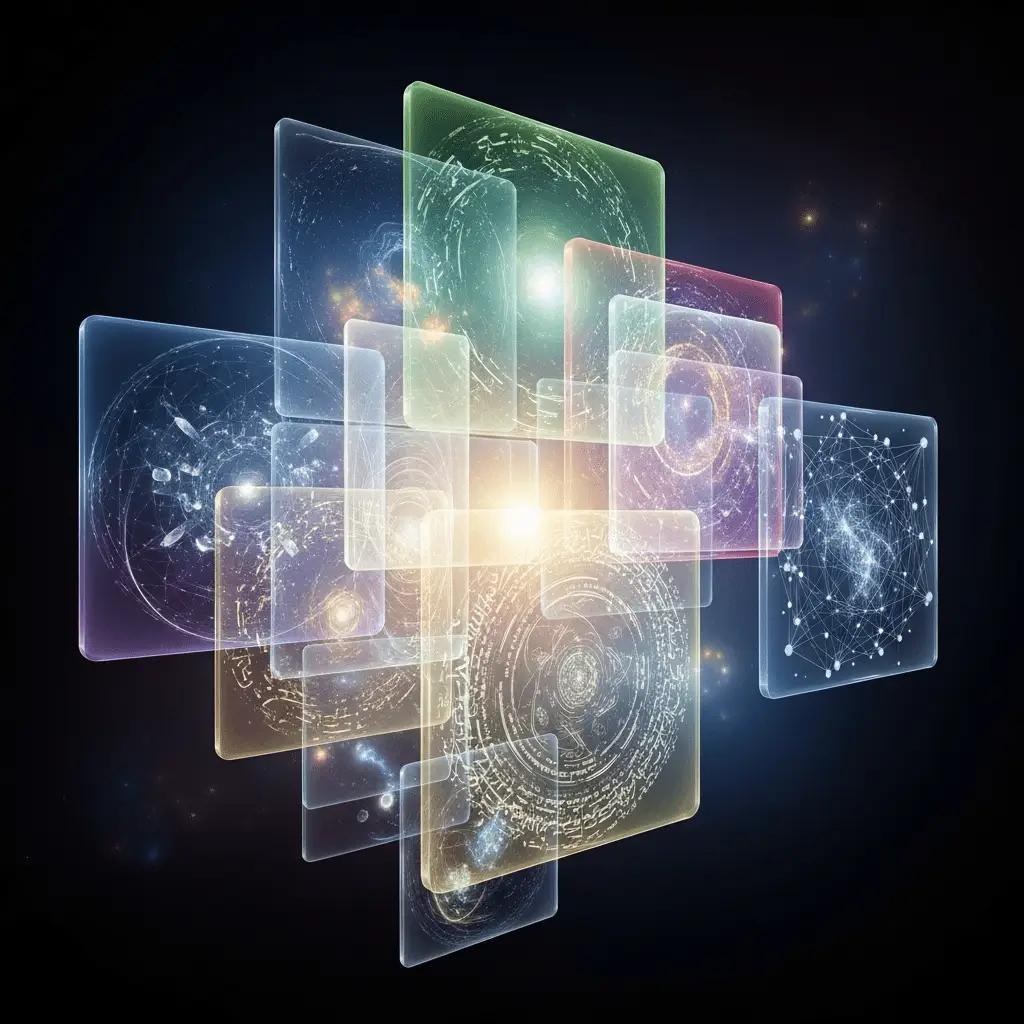
Suggested Reading and Watching List
1. For Innovation & a Sense of Wonder (The Telescope)
These stories inspire curiosity about science and technology, often grounded in plausible scientific principles.
- Books:
- The Martian and Project Hail Mary by Andy Weir: As mentioned in the article, these are masterclasses in scientific problem-solving and optimistic, collaborative innovation.
- The Three-Body Problem by Cixin Liu: A mind-bending epic that begins with first contact and expands to cover theoretical physics, cosmic sociology, and humanity's place in a hostile universe.
- I, Robot by Isaac Asimov: The foundational collection of stories that established the "Three Laws of Robotics" and explores the logical and ethical challenges of artificial intelligence.
- 2001: A Space Odyssey by Arthur C. Clarke: A classic that speculates on evolution, technology, and artificial intelligence, inspiring countless scientists and engineers.
- Neuromancer by William Gibson: The book that essentially created the "cyberpunk" genre, coining the term "cyberspace" and imagining a future of hackers, AI, and corporate espionage that feels startlingly prescient.
2. For Social Commentary & a Reflection of Humanity (The Mirror)
These stories use future or alternate worlds to critique our own society, politics, and human nature.
- Books:
- Parable of the Sower by Octavia E. Butler: A powerful and realistic depiction of societal collapse due to climate change and inequality, exploring themes of community, faith, and survival.
- The Dispossessed by Ursula K. Le Guin: A brilliant exploration of two planets—one a capitalist oligarchy, the other an anarchist utopia—to examine political systems, ownership, and freedom.
- Brave New World by Aldous Huxley: The classic dystopia that warns against a future of social engineering, consumerism, and the loss of individuality for the sake of stability.
- The Fifth Season (The Broken Earth Trilogy) by N.K. Jemisin: A fantasy/sci-fi hybrid that uses a world wracked by seismic apocalypse to explore themes of oppression, trauma, and systemic power.
- TV Series:
- The Expanse (Amazon PrimeJames S. A. Corey.
- Years and Years (HBO Max): A chillingly plausible drama that follows a single family over 15 years as the political, technological, and environmental landscape of our world rapidly transforms.
3. For Introspection & Metaphysical Questions (The Microscope)
These stories tackle the big, abstract questions about consciousness, reality, purpose, and what it means to be human.
- Books:
- Stories of Your Life and Others by Ted Chiang: The collection containing the short story that inspired the film Arrival. Every story is a meticulously crafted thought experiment, exploring topics ranging from language and time to the nature of divine knowledge.
- Do Androids Dream of Electric Sheep? by Philip K. Dick: The novel that inspired Blade Runner. It delves deeper into the philosophical questions of empathy, memory, and what separates authentic life from an artificial copy.
- Solaris by Stanisław Lem: A profound and haunting story about humanity's attempt to communicate with a sentient ocean-planet, ultimately serving as a meditation on the limits of human understanding and the nature of consciousness.
- Ancillary Justice by Ann Leckie: A space opera told from the perspective of an AI that was once a starship, exploring identity, memory, and consciousness in a way that challenges our assumptions about personhood.
- Films:
- Her (2013): A gentle and poignant film that explores the nature of consciousness and love through a man's bond with an advanced AI operating system.
- Gattaca (1997): A beautifully crafted film that critiques genetic determinism and champions the power of the human spirit to defy the limits imposed upon it.
🖥️Online Resources for Deeper Exploration
For those who want to continue the journey, these resources provide news, analysis, and community discussion.
1. For Reading Sci-Fi and Staying Current
- Tor.com: One of the most important publishers and online hubs for modern science fiction and fantasy. They publish free short stories, essays, reviews, and excerpts from upcoming novels.
- Clarkesworld Magazine: A Hugo and World Fantasy Award-winning online magazine that publishes a new slate of excellent, often thought-provoking, science fiction stories every month for free.
- Goodreads Sci-Fi & Fantasy Book Clubs: A great way to find curated reading lists, discover new authors, and discuss books with a community of fellow fans. Search for groups like "Science Fiction & Fantasy Book Club."
2. For Analysis and Discussion
- Isaac Arthur (YouTube Channel): For those interested in the "science" part of science fiction. Arthur explores futuristic concepts, such as megastructures, alien life, and interstellar travel, with a focus on scientific feasibility.
- Imaginary Worlds (Podcast): A bi-weekly podcast hosted by Eric Molinsky that uses science fiction and fantasy to explore how we create culture, meaning, and our own realities. It’s an excellent look at the "why" behind fictional worlds.
- r/printSF and r/scifi (Reddit): These subreddits are vibrant communities for in-depth discussion of science fiction books and media. They are excellent places to seek recommendations or discuss the themes of your favorite stories.
3. Non-Fiction for Context
- Homo Deus: A Brief History of Tomorrow by Yuval Noah Harari: This book explores humanity's future paths, grappling with the impact of algorithms, genetic engineering, and the quest for immortality—themes central to modern science fiction.
- Cosmos by Carl Sagan: While a science book, it perfectly captures the "sense of wonder" that fuels the best science fiction. It connects scientific discovery to the grand, philosophical questions about our place in the universe.
SoBrief.com is an AI-powered digital platform that provides concise summaries of an extensive catalog of books, enabling users to grasp a book's key takeaways in about 10 minutes.
Remember to explore these resources with an open mind and trust your intuition to find what resonates most deeply with your journey of rediscovery.
🔗 Affiliate Note: Some links on this page may be affiliate-based, allowing us to earn a small commission at no additional cost to you. Your support helps fuel this creative and healing mission—thank you!
Izalgo produced the images herein with AI-powered software.
Copyright©️ IZALGO, LLC All Rights Reserved

